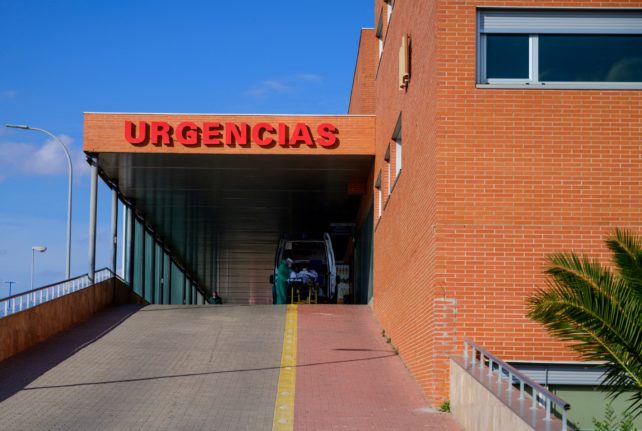Retiring to Spain is a dream for many, but in order to make that dream a reality, you need to know that you can financially support yourself.
For most retirees, their main or only income will be a UK pension, so it’s important to understand how your pension will work once you make the move to Spain.
There are some specific rules and restrictions you should know when your pension is paid outside of the UK. You also need to understand how your pension will be taxed in Spain.
Financial adviser, Maeve Hoffman, from Spectrum IFA Group, emphasised that people should not take these decisions lightly, telling The Local: “Figuring out what to do with your pension should be part of your wider financial plans for your life”.
“This may be your most important asset, besides your home, and the best answer for what to do with your pension is highly individual. There are no sweeping generalisations when it comes to advice on private pensions. Everyone’s situation is different,” she said.
This article is intended as an overview of how the system works for UK pensioners and is not intended as a substitute for individual financial advice. It’s aimed at people who have worked most or all of their career in the UK and then plan on retiring to Spain – the situation is slightly different for people who have worked in Spain and then retire here.
READ ALSO: Which UK benefits can Brits keep if they move to Spain?
Long-term or short-term
The first thing you need to decide is if you’re moving Spain for the long-term or short-term.
If you’re looking to stay here permanently, there are certain advantages you can benefit from, but they could make things extra complicated if you end up returning to the UK in the future.
Make sure you ask yourself the tough questions so you can think about every eventuality. Is there a chance that you will have grandchildren in the future that you’ll want to be close to them? Have you ever spent a significant time in Spain, before, apart from just for short holidays? Do you have connections to Spain, such as friends, family or a home? If your health deteriorates, will you want to be cared for in Spain or the UK?
If are unsure about the answers to these questions, then take some time to really think about them. There are alternatives to permanently moving to Spain if you are unsure – for example, you can stay here for three months without the need for a visa.
Understand the different tax rules
British retirees should be aware that the UK and Spain have very different tax systems.
Once you become a tax resident in Spain you have to file a yearly declaration on your global income. Your UK pension will be taxed in Spain and you will no longer be liable to UK taxation, unless you have a government service pension.
You can check if your pension is classified as ‘government’ here.
The UK state pension, as well as any other private pensions, will be taxable in Spain.
Because of this, will want to think about whether your previous plans for your private pension were only advantageous to you as a UK resident. Once you become a Spanish tax resident, they could have unforeseen implications.
For example, there is no tax-free lump sum in Spain. If you want to take out a lump sum, taking it while you are still a UK resident will save you a lot in tax.
Taxes also depend on the region in which you decide to retire to. Some are a lot more advantageous than others, so it’s important you know the rules of where you plan on moving to.
READ ALSO: Why you should move to this region in Spain if you want to pay less tax
Get reliable, expert financial advice before doing anything
If you have decided you want to be in Spain permanently, then you will need some expert tax and pension advice – but you need to be careful who you take advice from, this is a highly specialist area and it’s unlikely that high street financial advisers will have the knowledge that you need.
Brexit has also made getting financial advice more complicated, with fewer experts available.
Hoffman told The Local: “Because of Brexit, you cannot use a UK-based financial adviser anymore – you have to use an EU-registered one. This has made things more complicated. When picking an adviser, seek out someone who has expertise on the local taxation rules. They should also be regulated with the financial regulator where you live and where they work”.
It can be especially complicated to work out who you should and shouldn’t take advice from – for example, some UK-based advisers have continued to give advice to EU-based clients, even though are not following EU regulations anymore.
Hoffman adds: “There are free, government-based services in the UK that can help you understand your private pension – Pension Wise and Money Helper. Before doing anything, you should consult the free services. Any financial adviser worth their salt would recommend this too.
“These services have begun to have longer wait times, so be sure to book well in advance of when you plan to draw from your pension.”
Decide whether to transfer your pension
Another question that is important for Brits to think about is whether or not to transfer their pension into either a UK-based SIPP for non-residents, or a QROPS (Qualifying Recognised Overseas Pension Schemes).
The SIPP will keep your pension in the UK, while the QROPS moves it out of the UK.
These options can be helpful for residents in Spain, but you need to familiarise yourself with their benefits and drawbacks.
“The QROPS is not for someone who is unsure of their future, as if you return to the UK within five years of the pension transfer, HMRC will seek their tax back as if it was a full encashment,” Hoffman said.
You should also beware of scams on this subject, as the post-Brexit period saw many scammers seeking to persuade Brits that it was now mandatory to transfer their UK pension – always be wary of any cold-calling or unsolicited financial advice.
Determine how you will draw from your pension
The next factor to consider is how you want to receive your pension – either as regular income or as a lump sum. The option that you chose will have tax implications in Spain.
Generally, the tax rate will depend on the amount of your pension, but can range from 19 to 47 percent in Spain.
Remember that there is no ‘tax-free lump sum’ in Spain, so it’s best that you don’t draw from your pension that way.
Healthcare and Social Security
You won’t automatically be covered for healthcare in Spain if you retire here, because you won’t be working and therefore won’t be paying social security.
Thankfully, there are various options. UK nationals who retire to Spain (and have never worked in Spain) and have already reached the state pension age can apply for the S1. This means that the UK continues to pay for their healthcare costs and they would not be charged social security. Non-working spouses of an S1 holder can also benefit from this.
READ ALSO – Healthcare in Spain: the steps to apply for the S1 form for UK state pensioners
You can also choose to pay for the convenio especial (which translates to ‘special agreement’). This allows foreigners in Spain to pay a monthly sum into the country’s public health system to have access to it, even if they don’t work. To access it, you will pay a monthly fee of €60 if you are under 65 and €157 if you are over 65.
Of course, you also have the option of getting private health insurance too.



 Please whitelist us to continue reading.
Please whitelist us to continue reading.
Member comments